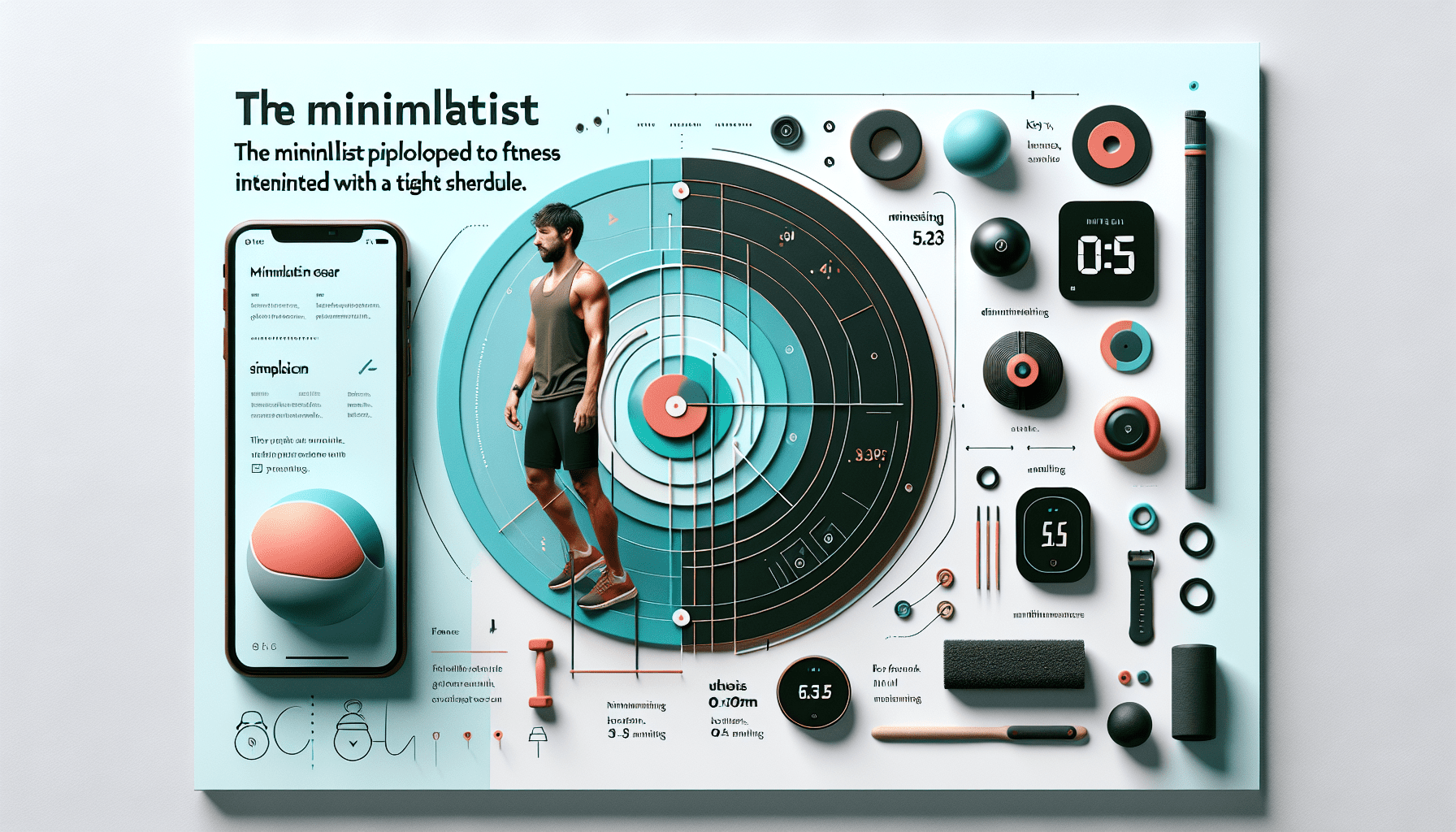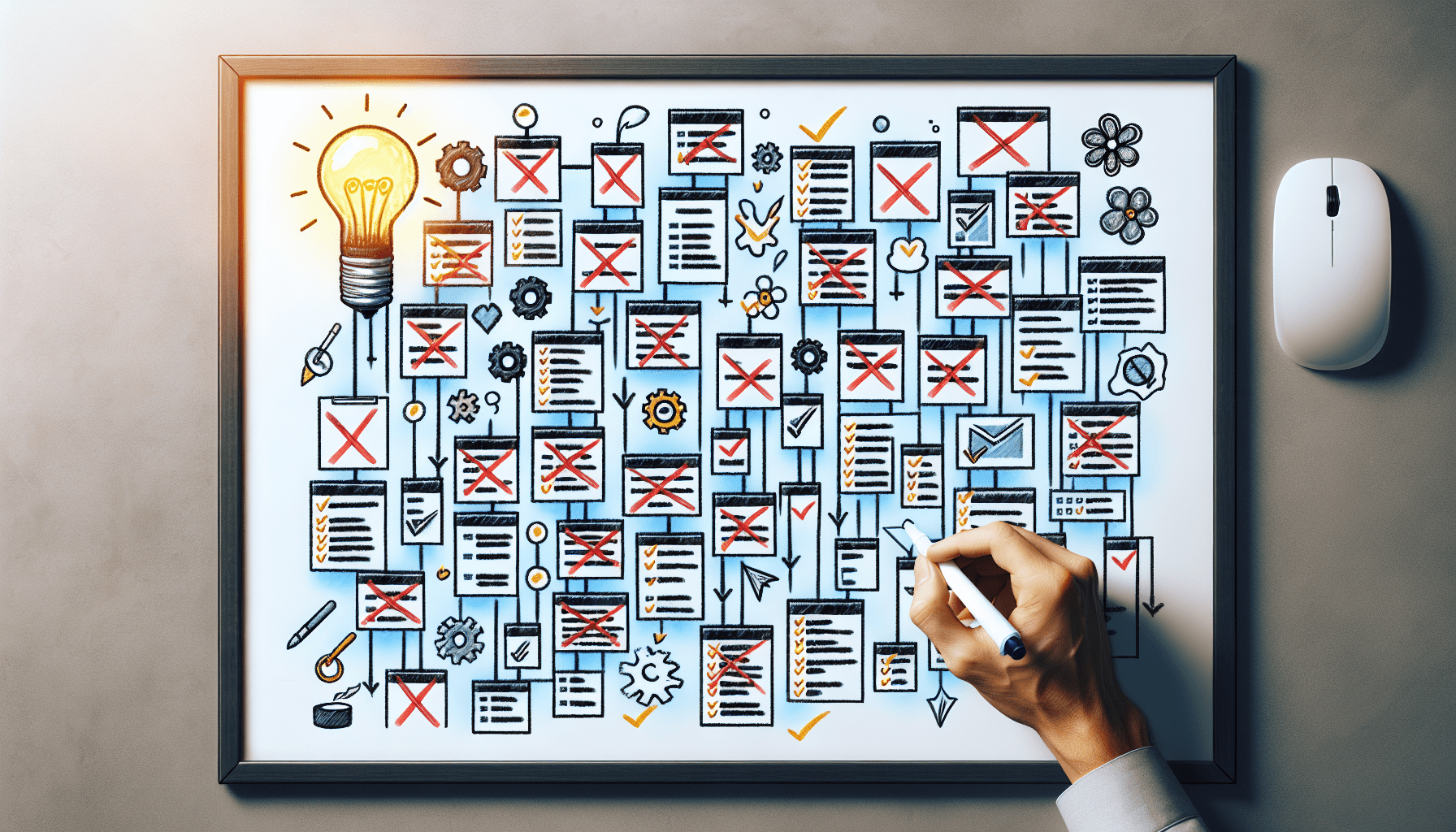
Deep Work: Strategies For Sustained Concentration And Focus

In today’s fast-paced and constantly connected world, maintaining focus and sustaining concentration on our tasks can be a real challenge. We often find ourselves easily distracted and unable to fully engage with our work. That’s where deep work comes in – a practice that allows us to harness the power of sustained focus and eliminate distractions. In this article, we will explore some effective strategies for deep work, including mindfulness techniques, staying present, and concentration strategies. By incorporating these techniques into your daily routine, you can unlock higher levels of productivity and achieve your goals with greater ease.

Understanding Deep Work
Definition of deep work
Deep work refers to the state of uninterrupted, focused, and concentrated work that allows individuals to maximize their productivity and produce high-quality output. It is a state of flow where distractions are minimized, and attention is fully directed towards a specific task or project. Deep work requires intense cognitive efforts and often involves complex problem-solving, creativity, or learning. It is a valuable skill in today’s fast-paced world, where constant distractions and interruptions can hinder productivity and prevent individuals from achieving their full potential.
Benefits of deep work
Engaging in deep work can yield numerous benefits for individuals in various aspects of their lives. By dedicating focused time to important tasks, one can experience an increase in productivity, efficiency, and effectiveness. Deep work allows for better concentration and attention, leading to a higher quality of work and better results. This focused approach can also enhance learning and skill development, as it provides an opportunity for a deep understanding of complex topics. Additionally, deep work can foster creativity and innovation by allowing individuals to fully immerse themselves in their work without distractions.
Challenges in achieving deep work
While the concept of deep work may seem appealing, there are several challenges that individuals often face when trying to achieve and maintain this state of focus. One common challenge is the prevalence of distractions in today’s digital age. With constant notifications, emails, and social media updates, it can be difficult to resist the temptation to constantly switch tasks or check electronic devices. Another challenge is the pressure to multitask and juggle multiple responsibilities simultaneously, which can prevent individuals from dedicating sufficient time to deep work. Moreover, deep work requires mental stamina and the ability to sustain concentration for extended periods, which can be challenging for some people. Overcoming these challenges and cultivating the habit of deep work requires deliberate effort and the implementation of effective strategies.
Creating an Environment for Deep Work
Designating a dedicated workspace
To facilitate deep work, it is crucial to designate a dedicated workspace where you can fully immerse yourself in your tasks without external distractions. Ideally, this space should be separate from your regular living areas to minimize interruptions. It could be a home office, a quiet corner of a library, or even a coffee shop with minimal noise. Personalize your workspace to make it comfortable and conducive to your specific needs. Ensure that it is well-lit, organized, and equipped with the necessary tools and resources you may require during deep work sessions.
Minimizing distractions
Creating an environment conducive to deep work also involves minimizing distractions as much as possible. This includes turning off notifications on your electronic devices, putting your phone on silent mode, and closing unnecessary tabs and applications on your computer. Consider using noise-cancelling headphones or playing soft instrumental music to drown out external noises and create a focused atmosphere. It may also be helpful to communicate your need for uninterrupted time to those around you, setting boundaries and expectations to minimize interruptions.
Setting the right atmosphere
The atmosphere in your workspace can significantly impact your ability to concentrate and engage in deep work. Pay attention to factors such as lighting, temperature, and airflow to ensure optimal comfort. Experiment with different lighting options, such as natural light or warm-toned artificial light, to find what works best for you. Maintain a comfortable temperature that keeps you alert and focused without being too distracting. Additionally, ensure proper ventilation in your workspace to promote fresh air circulation and prevent feelings of stuffiness or drowsiness.

Setting Goals and Prioritizing Tasks
Identifying important tasks
Before diving into deep work, it is essential to identify and prioritize the most important tasks that align with your goals and objectives. Take some time to evaluate your workload and assess the tasks that require your undivided attention and focus. These tasks could be critical projects, complex problem-solving, or creative endeavors that can significantly impact your personal or professional growth. By identifying and acknowledging these tasks, you can ensure that you allocate sufficient time and energy for deep work to tackle them effectively.
Breaking down tasks into manageable chunks
Once you have identified the important tasks, it can be helpful to break them down into smaller, more manageable chunks. This approach makes tasks feel less overwhelming and allows you to focus on specific aspects or milestones at a time. Breaking tasks down also helps in creating a sense of progress and accomplishment, as you can complete smaller portions of the task within a given time period. This approach promotes a feeling of momentum and can help maintain motivation during deep work sessions.
Setting realistic goals
While deep work can be highly productive, it is crucial to set realistic goals to avoid burnout and frustration. Establishing achievable targets allows you to maintain a sense of progress and prevents feelings of overwhelm. Consider factors such as your energy levels, the complexity of the task, and the available time when setting goals. Remember that deep work requires mental exertion and focus, so be mindful of setting realistic expectations that align with your capabilities and limitations. Celebrate small wins along the way to stay motivated and inspired to continue your deep work journey.
Time Blocking and Scheduling
Introduction to time blocking
Time blocking is a highly effective technique for managing your schedule and allocating dedicated time for deep work. It involves dividing your day into distinct blocks of time, each dedicated to specific tasks or activities. By assigning specific time slots to deep work, you ensure that you have dedicated and uninterrupted periods to focus on important tasks. Time blocking provides a visual representation of how you plan to spend your day and helps prioritize deep work amidst other responsibilities and commitments.
Creating a schedule
To implement time blocking effectively, start by creating a schedule that outlines your daily activities and tasks. Begin by blocking out fixed commitments such as meetings, appointments, or classes. Next, identify and allocate dedicated time blocks for deep work sessions. Consider your personal preferences and energy levels when deciding the most suitable times for deep work. Some individuals may find early mornings or late evenings to be their most productive periods, while others may thrive during specific hours of the day. Aim for a schedule that optimizes your productivity and allows for a balance between deep work and other essential activities.
Allocating specific time for deep work
Within your schedule, allocate specific time blocks for deep work sessions. These blocks should be of sufficient duration to allow for meaningful progress on your identified tasks. Consider the nature of the tasks and the level of concentration they require when determining the duration of deep work sessions. Be mindful of setting realistic timeframes that account for breaks, meal times, and other necessary activities. Allocating specific time for deep work helps in cultivating a habit of focused work and ensures that you consistently dedicate uninterrupted periods to your most important tasks.

Implementing Mindfulness Techniques
Practicing focused breathing
One powerful mindfulness technique that can enhance deep work is focused breathing. Deep, intentional breathing helps calm the mind, center your focus, and eliminate mental clutter. Begin by finding a comfortable position in your workspace, close your eyes, and take a slow, deep breath in through your nose. Pay attention to the sensation of the breath filling your lungs, and then exhale slowly through your mouth. Repeat this process several times, focusing solely on your breath and letting go of any intrusive thoughts. This practice can help clear your mind, reduce stress and distractions, and prepare you for a productive deep work session.
Utilizing meditation techniques
Meditation is another powerful mindfulness practice that can greatly enhance deep work. By regularly engaging in meditation, you can cultivate a heightened sense of focus, attention, and self-awareness. Find a quiet space where you can sit comfortably and practice meditation for a few minutes each day. There are various meditation techniques to explore, such as focusing on a specific object, repeating a mantra, or practicing body scan meditation. Consistent meditation practice can improve your ability to sustain concentration, remain present, and engage in deep work with clarity and purpose.
Using mindfulness apps and tools
In addition to traditional mindfulness techniques, there are numerous apps and tools available that can aid in improving focus and reducing distractions during deep work. These apps often provide guided meditations, ambient sounds, or timers to help you structure your deep work sessions effectively. Some popular mindfulness apps include Headspace, Calm, and Insight Timer. Experiment with different apps and tools to find what resonates with you and best supports your deep work journey. Remember that these tools are meant to complement your practice and should not become additional distractions themselves.
Building a Productive Routine
Establishing a morning routine
Building a productive routine that includes a dedicated time for deep work can greatly enhance your overall effectiveness and focus. Begin by establishing a consistent morning routine that sets a positive tone for the rest of the day. Wake up at a consistent time and engage in activities that energize and prepare you for deep work. This could include practices such as exercise, meditation, journaling, or reading. By starting your day mindfully and intentionally, you can create a sense of calm and focus that carries over into your deep work sessions.
Optimizing energy levels
Optimizing your energy levels throughout the day is crucial for sustaining deep work. Pay attention to your natural energy patterns and adjust your schedule accordingly. Consider factors such as your peak productivity hours and any energy slumps you may experience. Schedule your deep work sessions during times when you feel most alert and capable of engaging in focused work. Additionally, prioritize self-care practices that contribute to your overall well-being, such as regular exercise, healthy meals, and sufficient rest. Taking care of your physical and mental health directly impacts your energy levels and ability to engage in deep work effectively.
Creating a shutdown ritual
Just as establishing a morning routine is essential, creating a shutdown ritual is equally valuable. A shutdown ritual involves a deliberate transition from deep work to relaxation or personal time. It signals the conclusion of your workday and allows you to disconnect from work-related thoughts and tasks. Determine specific actions or activities that signify the end of your deep work session, such as closing your laptop, tidying your workspace, or engaging in a brief mindfulness practice. By implementing a shutdown ritual, you can create a clear boundary between work and personal life, preventing burnout and supporting work-life balance.
Utilizing Technology to Aid Deep Work
Productivity apps and tools
Technology can be both a distraction and a valuable asset when it comes to deep work. Numerous productivity apps and tools are designed to help individuals stay organized, focused, and productive. Task management apps like Todoist or Trello can assist in prioritizing and tracking tasks, while note-taking apps like Evernote or Notion can capture your ideas and thoughts. Experiment with different apps and find ones that align with your preferences and workflow. It is important to strike a balance and use technology mindfully, ensuring that these tools enhance rather than hinder your deep work sessions.
Distraction-blocking browser extensions
One common challenge during deep work is the temptation to visit distracting websites or engage in non-work-related online activities. To counteract this, several distraction-blocking browser extensions are available that can help minimize these distractions. Extensions like StayFocusd, Forest, or Freedom allow you to block access to specific websites or set time limits for social media usage. By temporarily eliminating access to these distractions, you can significantly increase your focus and reduce the likelihood of task switching or time-wasting activities.
Digital detox techniques
In addition to utilizing productivity apps and browser extensions, implementing digital detox techniques can be highly beneficial for deep work. Consider setting specific periods of time where you intentionally disconnect from digital devices and engage in offline activities. This could involve allocating a block of time each day or designating specific days of the week for digital detox. During these periods, focus on engaging in activities that promote mindfulness, creativity, and relaxation, such as reading a book, going for a walk, or engaging in a hobby. Disconnecting from technology allows for mental rejuvenation and helps combat the constant stimulation and distractions that hinder deep work.
Managing Energy and Avoiding Burnout
Recognizing signs of burnout
Properly managing your energy levels and avoiding burnout is crucial for maintaining sustained deep work. It is important to recognize the signs of burnout, such as chronic fatigue, lack of motivation, or decreased productivity. When these signs are present, it is necessary to take a step back, reassess your workload, and make modifications to prevent further exhaustion. Being proactive about self-care, setting realistic expectations, and maintaining a healthy work-life balance are essential components of managing energy effectively.
Implementing breaks and rest periods
Deep work does not mean working continuously without breaks. In fact, incorporating regular breaks and rest periods is vital for maintaining productivity and preventing burnout. Research has shown that taking short breaks every hour or two can actually enhance focus and performance. During these breaks, engage in activities that help you relax and recharge, such as stretching, going for a short walk, or practicing mindfulness. By allowing yourself these intentional breaks, you can return to your deep work sessions with increased energy, focus, and mental clarity.
Incorporating exercise and movement
Physical exercise plays a crucial role in managing energy levels and supporting deep work. Regular exercise stimulates blood flow to the brain, enhances cognitive function, and boosts overall well-being. Consider incorporating short bouts of physical activity into your daily routine, whether it’s a morning walk, a yoga session, or a quick workout. Movement can help combat feelings of sedentary fatigue, increase alertness, and improve your ability to concentrate during deep work. Find activities that you enjoy and make them a part of your routine to promote both physical and mental well-being.
Overcoming Procrastination
Understanding the root causes of procrastination
Procrastination is a common barrier to deep work and can prevent individuals from achieving their goals effectively. To overcome procrastination, it is essential to understand its root causes. Procrastination often stems from factors such as fear of failure, lack of motivation or interest, perfectionism, or feeling overwhelmed by the task at hand. By identifying the specific reasons behind your procrastination tendencies, you can develop strategies to address and overcome them.
Implementing strategies to overcome procrastination
Once you have identified the root causes of your procrastination, it is time to implement effective strategies to overcome this habit. Start by breaking down tasks into smaller, more manageable steps. This reduces the sense of overwhelm and makes it easier to initiate work. Set specific deadlines or time limits for each step to create a sense of urgency and accountability. Additionally, experiment with different productivity techniques, such as the Pomodoro Technique, where you work for a focused period of time followed by a short break. Find what strategies work best for you and adopt a proactive approach to tackle procrastination head-on.
Building discipline and motivation
Building discipline and motivation are essential for consistently engaging in deep work and combatting procrastination. Develop a strong sense of purpose by setting clear goals and reminding yourself of the long-term benefits of deep work. Cultivate discipline by establishing routines, adhering to schedules, and consistently prioritizing deep work in your daily life. Celebrate your achievements and progress to maintain motivation and enthusiasm. Remember that discipline, like any skill, can be cultivated over time and becomes easier with consistent practice and reinforcement.
Collaboration and Deep Work
Finding balance between deep work and collaboration
While deep work often requires solitude and uninterrupted focus, collaboration and teamwork are also vital in many professional and personal contexts. It is essential to find a balance between these two modes of work to achieve optimal results. Designate specific time periods for deep work, where collaboration and interruptions are minimized, and communicate this dedicated time to your colleagues or team members. At the same time, schedule separate periods for collaboration, brainstorming, and teamwork, where ideas are shared, and relationships are nurtured. A healthy balance between deep work and collaboration is key to fostering productivity and cultivating a supportive work environment.
Setting boundaries for interruptions
To support deep work, it is crucial to set clear boundaries for interruptions and distractions. Communicate your need for uninterrupted time to your colleagues, team members, or family members, and establish guidelines for when interruptions are acceptable and when they should be minimized. Use tools such as status indicators or “do not disturb” notifications to signal to others that you are engaged in deep work and should not be disturbed unless it is an urgent matter. By setting boundaries and managing interruptions effectively, you can create an environment conducive to deep work and enhance your overall productivity and concentration.
Creating a supportive work environment
Creating a supportive work environment that values and facilitates deep work is crucial for sustained concentration and productivity. Encourage open communication and transparency within your team or organization, allowing individuals to express their needs for deep work and uninterrupted focus. Foster a culture that respects personal boundaries and offers support and understanding during deep work sessions. Encourage collaboration and teamwork while also emphasizing the importance of dedicated time for deep work. By creating a supportive work environment, you can enhance productivity and foster a sense of collective focus and achievement.
In conclusion, deep work is a valuable skill in today’s fast-paced, distraction-filled world. By understanding the definition of deep work, acknowledging its benefits and challenges, and implementing effective strategies, you can cultivate an environment that supports sustained concentration and focus. Designating a dedicated workspace, minimizing distractions, and setting the right atmosphere create an ideal setting for deep work. Setting goals, prioritizing tasks, and implementing time blocking techniques help allocate specific time for deep work and increase productivity. Incorporating mindfulness techniques, building a productive routine, and utilizing technology aid in enhancing focus and reducing distractions. Managing energy, avoiding burnout, overcoming procrastination, and finding a balance between deep work and collaboration contribute to sustained concentration and success. By incorporating these strategies into your life, you can unlock your full potential, achieve greater productivity, and accomplish meaningful work.






















